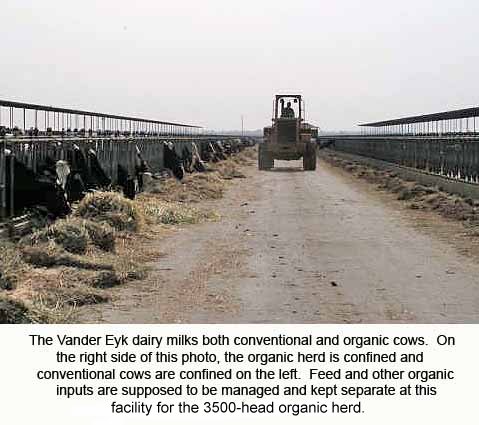Class Action Suits Seek Damages from Sale of Fraudulent Milk
Acting on behalf of organic food consumers in 27 states, class action lawsuits are being filed in U.S. federal courts, in St. Louis and Denver, against the nation's largest organic dairy. The suits charge Aurora Dairy Corporation, based in Boulder, Colorado, with allegations of consumer fraud, negligence, and unjust enrichment concerning the sale of organic milk by the company. This past April, Aurora officials received a notice from the USDA detailing multiple and "willful" violations of federal organic law that were found by federal investigators.
"This is the largest scandal in the history of the organic industry," said Mark Kastel of The Cornucopia Institute, a Wisconsin-based farm policy research group. Cornucopia's 2005 formal legal complaint first alerted USDA investigators to the improprieties occurring at Aurora. "Aurora was taking advantage of the consumer's good will in the marketplace toward organics, and the USDA has allowed this scofflaw- corporation to continue to operate," Kastel added.
Law firms based in Ohio, Illinois, and Missouri have so far have filed one of the lawsuits in Missouri, with another suit, covering dozens of additional states where plaintiffs live, due to be filed in Denver tomorrow. The attorneys are seeking damages from Aurora to reimburse consumers harmed by the company's actions and are requesting that the U.S. District Courts put an injunction in place to halt the ongoing sale of Aurora's organic milk in the nation's grocery stores until it can be demonstrated that the company is complying with federal organic regulations.
Aurora, with $100 million in annual sales, provides milk that is sold as organic and packaged as private label, store-brand products for some of the nation's biggest chains, including Wal-Mart, Target, Costco, Safeway, Wild Oats, and about 20 others.
Independent investigators at the USDA concluded earlier this year that Aurora-with five dairy facilities in Colorado and Texas, each milking thousands of cows-had 14 "willful" violations of federal organic regulations. One of the most egregious of the findings was that from December 5, 2003, to April 16, 2007, the Aurora Dairy "labeled and represented milk as organically produced, when such milk was not produced and handled in accordance with the National Organic Program regulations."
Note: Organic Connection only offers milk & dairy products from regional farmers, family businesses, farmer co-operatives or small organic companies. We maintain the preference and ability to communicate with real people in business rather than work with faceless corporations.
read more about the lawsuit (Cornucopia.Org)




